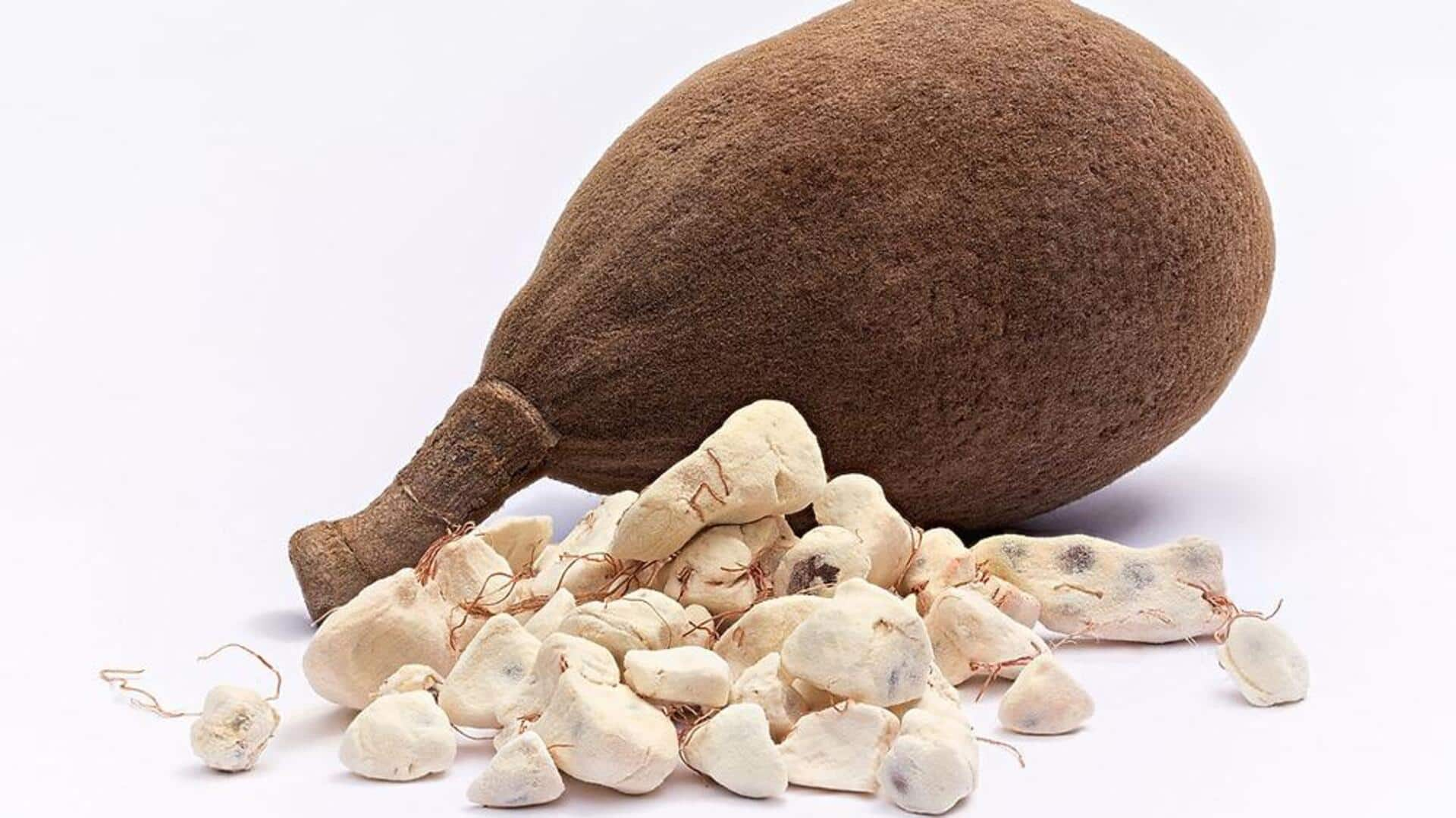
Baobab: Africa's nutritional powerhouse fruit
What's the story
The baobab fruit, which comes from the Adansonia tree indigenous to Africa, holds a well-deserved reputation as a nutritional powerhouse. It is packed with vitamin C, high in dietary fibers, and full of antioxidants. Unlike other fruits, it dries naturally on the branch. This means the dry pulp, which is what we use, doesn't need any extra processing. So, it is not just a superfood, it is eco-friendly too.
Vitamin boost
A rich source of vitamin C
Baobab fruit is a vitamin C powerhouse! Just 100 grams of baobab powder can supply up to 40% of your daily recommended intake. This essential nutrient boosts your immune system, keeps your skin healthy, and helps your body absorb iron. With its high vitamin C content, baobab is the perfect addition to your diet for fighting off colds and flu, promoting glowing skin, and supporting overall wellness.
Fiber power
Packed with dietary fibers
Dietary fibers are crucial for a healthy digestive system. Baobab is a powerhouse of both soluble and insoluble fibers - a whopping 50% of its weight is fiber! This high fiber content aids in promoting regular bowel movements, lowering cholesterol levels, and managing blood sugar levels. Adding baobab to your meals can help you reach your daily fiber goals with ease.
Antioxidant benefits
Antioxidant-rich superfood
Antioxidants are molecules that fight off harmful substances known as free radicals in our bodies, thereby preventing cell damage that can lead to chronic diseases like heart disease and cancer. Baobab is packed with powerful antioxidants including vitamin C, flavonoids, and polyphenols. In fact, research indicates that baobab boasts a significantly higher antioxidant content compared to other antioxidant-rich fruits, including blueberries and cranberries.
Culinary creativity
Versatile culinary uses
The tangy taste of baobab powder adds a flavorful twist to many recipes, from refreshing smoothies to delicious baked goods. Its neutral flavor profile means you can easily add it to your everyday meals without changing the taste too much. Just a spoonful of baobab powder in your morning smoothie or yogurt is enough to significantly increase its nutritional value.
Eco-friendly choice
Sustainable harvesting practices
The collection of baobab fruit contributes to sustainable agriculture in Africa as the trees are wild and do not rely on irrigation, pesticides, or fertilizers for growth. Local communities hand-harvest the fruits without damaging the trees, guaranteeing a sustainable yield year after year and a consistent source of income for those communities involved in the process.